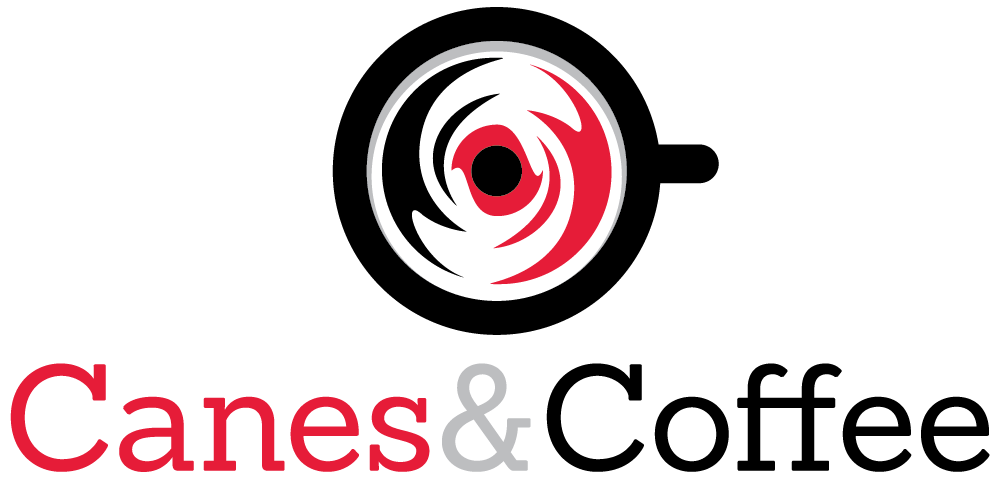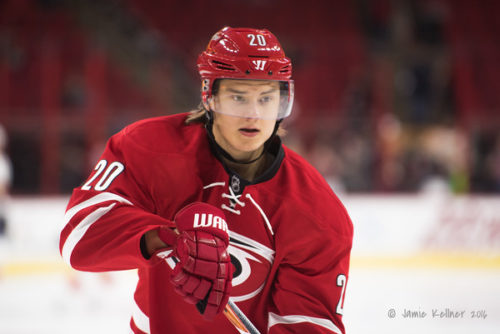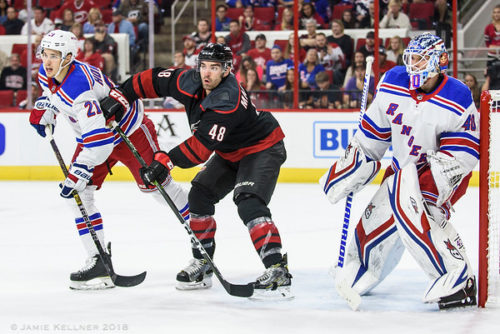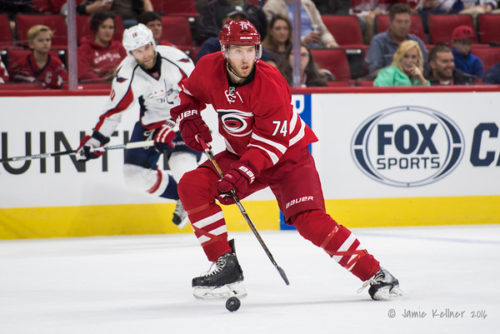The odds seem long
When a team finishes 26th out of 30 in the NHL and misses the playoffs by 25ish points and does not make a bunch of significant moves in the offseason, the playoffs seem like a long shot the next season. But I think the gap between the playoffs and near the bottom of the league is smaller than in any other major professional sports league. Sure there were unique circumstances with the season lost to labor issues, but even still the Canes Stanley Cup victory came out of the ashes of a horrible season and virtually unanimous predictions for similar heading into the magical 2005-06 season.
None of this is trying to say that where a team left off in 2014-15 does not impact the 2015-16 season. The Blackhawks, Lightning and other elite teams from 2014-15 are much more likely to do well and at least make the playoffs this season. And from the bottom teams in 2014-15 more of them will miss the playoffs than will make it.
Recent history suggests odds are better than one would think
But there will be teams who were not good in 2014-15 who make the playoffs this season. There always is.
2009-10 bottom 5 finisher Tampa Bay made the 2010-11 playoffs.
2010-11 bottom 5 finisher Ottawa made the 2011-12 playoffs.
2011-12 bottom 5 finishers Montreal, Anaheim and New York Islanders made the 2012-13 playoffs.
2012-13 bottom 5 finishers Tampa Bay and Colorado made the 2013-14 playoffs.
2013-14 bottom 5 finishers Calgary and New York Islanders made the 2014-15 playoffs.
It seems strange, but when you look back over the past 5 years, the bottom 5 finishers in the league have made the playoffs 36 percent of the time in the very next season.
So what does it take for the Hurricanes to be 1 of those teams for 2015-16?
I say it takes 3 things to at least play hockey that matters in March and have a chance to be 1 of the surprise teams for 2015-16.
1) Solid goaltending throughout the season
A hot goalie can offset so many other things. If the Canes are to ride into a March that matters, I think it will have to be on the back of the goalies. Right now, Cam Ward is front and center and looking capable of the challenge.
2) Sound defensive hockey
The other key to staying in games is at least decent play defensively. Goalies can only do so much if there is a wreck in front of them. We have already seen both ends of this continuum with Ward playing really well in games where the Canes had no chance because of the play in front of him. And more recently we have seen games when Cam Ward was good but really was not asked to do anything crazy for a win because the team in front of him gave him a manageable game.
The 2-way play of the forwards has looked pretty good of late. The other key will be the suddenly very young blue line.
- Brett Pesce has jumped into the top 4 as an inexperienced 20-year old and looked fine in the process. Can he maintain this high level of play over the course of a long NHL season? Or will he run out of adrenaline and/or hit a physical wall?
- Can Noah Hanifin and Ryan Murphy continue to grow from where they are right now?
- Can the team stay healthy? The depth chart below the current players brings even more inexperienced players into roles that are seemingly far above their level of development. Keeping the current 50/50 mix of youth and veterans seems to be working but too much more youth seems like a stretch.
The importance of playing sound hockey and staying in games
If a team gets both of #1 and #2, it will be in most of their games and play a good number of 1-1 and 2-2 type of games. Teams that stay in games regardless of good day/bad day obviously have a chance to win with 1 good play at the end. Equally significantly, the NHL point system rewards this much more than either winning big or losing big. Overtime nets a point automatically and what happens next is largely a coin flip for another point (though maybe a bit less so with 3-on-3 deciding more games than shootouts). 1 win and 1 loss seems sort of the same as 2 ties until you consider what it means for points in the standings. A win and a loss nets 2 points in 2 games, or an 82-point full season pace. 2 ties instead nets 3 points on average, or a pace for 123 points over a full season. Those obviously are wildly different totals when it comes to playoff rankings.
3) Leaders need to lead
For the Hurricanes to be successful, there must be an element of young and depth players making contributions. The Canes are not a particularly deep team in terms of proven veteran NHLers at the top half of the roster. But I think more significant than that is the need for the Canes top players to rebound from what were almost to a man weak 2014-15 seasons. They need to score more than in 2014-15. They also need to be the best players on the ice on a regular basis and match other teams’ elite players. The Hurricanes might win a few games here and there from heroic efforts from depth players, but if the Canes top players are regularly outplayed by other teams’ top players, it will be an uphill battle with more disappointments than successes.
I think the short list of players that I put in this category are Eric Staal, Jordan Staal, Jeff Skinner and Kris Versteeg at forward. On defense, I now include all 3 veterans – Justin Faulk, Ron Hainsey and John-Michael Liles who must eat up a ton of minutes and be steady night in and night out. And in net, I think either goalie could rise up though Cam Ward is certainly the incumbent and most promising right now.
4) Must win on home ice
With the ability to better control match ups at home and get young players on the ice in the right situations, the Canes need to win at home. The basic formula for making the playoffs in the NHL is to get half the points on the road (so 41 points in 41 games) and two-thirds of the points at home (so 54 points in 41 games) which makes 95 which is about where the cut line is for the last wildcard most seasons.
I think a potential path to the playoffs will require finding a rhythm and a bunch of points during 2 busy home stretches of schedule. The Canes are 2 games into a run of hockey that sees 13 of 17 games on home ice through the first week of December. The team also sees a run of 8 out of 10 at home in the second half of February leading into the playoff stretch run in March.
I think a winning run in 1 or both of these stretches will be a necessary ingredient to playing hockey that matters in March.
Go Canes!




We are at least two scorers shy of a Playoff team so unless a couple players step up I don’t see us making the playoffs. Brock is a fun all around player to watch but we need goal scorers and play makers. We have too many hard working average players. The good news is our defense has huge upside right now. yes they are making mistakes but you can see a lot of promise there.